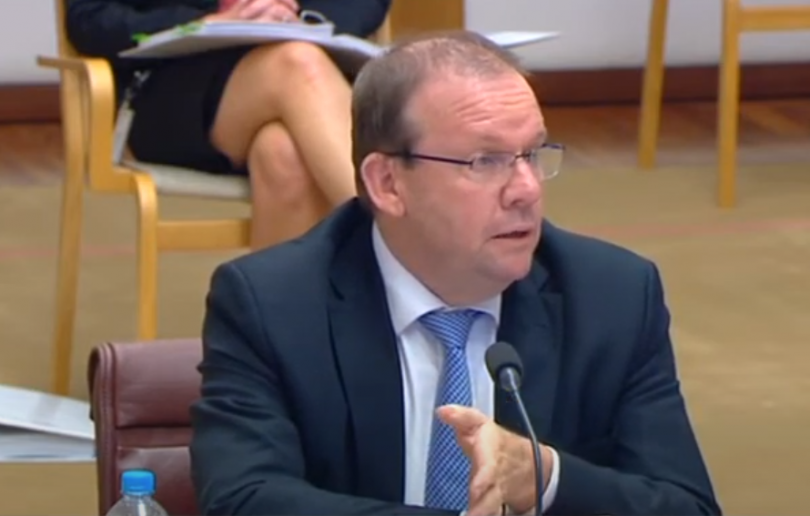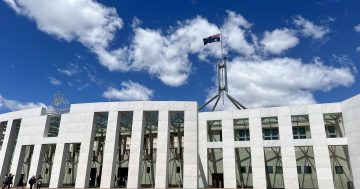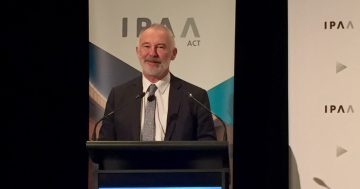
Auditor-General Grant Hehir: ethics are back. Photo: Parliament House.
Federal Auditor-General Grant Hehir has thrown a cat among the public service pigeons with his intent to frame future audits from an ethical perspective.
That might seem an impossible task, like trying to grasp a handful of smoke, but if public servants are looking to their statutory duties, it’s an area they better come to grips with.
As Mr Hehir points out, the Public Governance, Performance and Accountability Act requires public sector leaders to govern their entities in a way that promotes the proper use and management of public resources, defined as “efficient, effective, economical and ethical”.
Governments can be big on the first three, especially when it comes to being effective, but in a profession where, like love and war, all’s fair, ethics, like truth, can be a casualty.
Mr Hehir isn’t about to be too philosophical here because he is attempting to hold public servants directing or doing the spadework accountable for how our money is being spent.
He has had plenty of motivation, delivering highly critical reports on the administration of grants in the lead-up to the last Federal election that became known as the sports and car park rorts scandals, not that the Coalition conceded that it had done anything wrong.
That’s a pattern of behaviour these days from politicians inured to any of the sanctions built into the Westminster system of government.
Mr Hehir’s move to restore ethics to the heart of decision-making is both a warning shot and a call to arms for public servants after many years where the emphasis has been more on serving the government than the public.
In the can-do age, making things happen rather than doing things properly within the rules has become a valuable commodity, turning public servants into enablers of questionable policies, programs and expenditures.
But serving the realm instead of the ruler, as the Game of Thrones‘ Lord Varys knew too well, can be a dangerous thing.
A public servant may not end up roasted, but careers can be made or unmade through the choices they face in administering a government’s agenda.
The notion of “frank and fearless advice” has become almost a cliche and the reserve of the “courageous”.
But Mr Hehir obviously believes that whether those choices and decisions are ethical, and whether such things as grants programs are administered within the rules, and the spirit of the rules, are important.
The seeming absence of a moral centre to government practice in so many areas, if not outright corruption, also raises the ongoing issue of the long-promised federal integrity body.
Prime Minister Scott Morrison promised it more than two years ago, but it seems no closer to being established.
As the sanction of Parliament, Senate and House committees and even the media fallout fail to deter certain behaviour, the time has come for the Federal Government to join state and territory counterparts in submitting itself to an ICAC equivalent.
If such a body only served to make government think twice about its practices and prompted public servants to rethink their choices, that would be worthwhile.
But power being what it is, no doubt it would have messier work to do.
The Australian Public Service Commission carries a brief for raising and reinforcing integrity in the APS, and it is a core component of its learning and development program.
So it is in a key position of responsibility and influence for guiding a bureaucracy that does not produce the kinds of outcomes that Mr Hehir found so disturbing and prompted him to remind public servants that ethics are not just an aspiration but a legal requirement that is part of their job description.



















